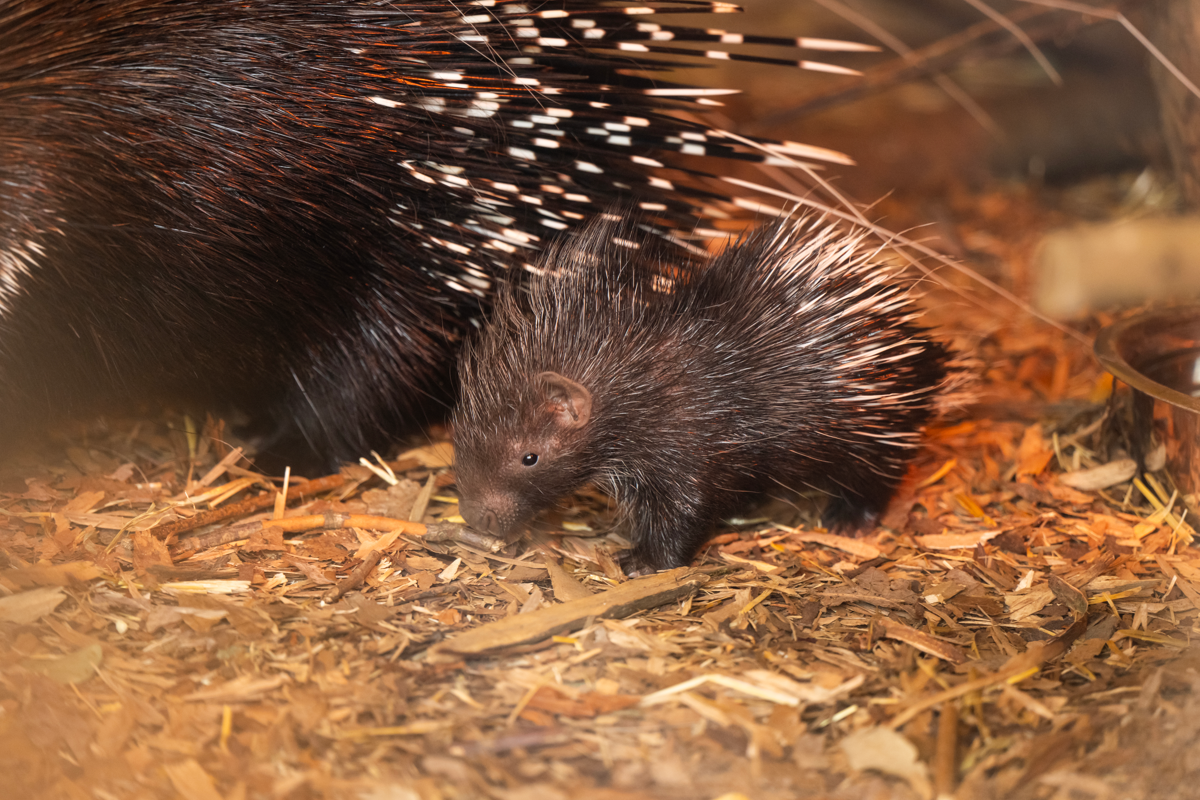Whipsnade Zoo celebrates birth of baby porcupine in time for Mother’s Day
Mum Kimya gave birth to the youngster at the UK’s largest zoo.

Your support helps us to tell the story
From reproductive rights to climate change to Big Tech, The Independent is on the ground when the story is developing. Whether it's investigating the financials of Elon Musk's pro-Trump PAC or producing our latest documentary, 'The A Word', which shines a light on the American women fighting for reproductive rights, we know how important it is to parse out the facts from the messaging.
At such a critical moment in US history, we need reporters on the ground. Your donation allows us to keep sending journalists to speak to both sides of the story.
The Independent is trusted by Americans across the entire political spectrum. And unlike many other quality news outlets, we choose not to lock Americans out of our reporting and analysis with paywalls. We believe quality journalism should be available to everyone, paid for by those who can afford it.
Your support makes all the difference.A porcupine family at the UK’s largest zoo has grown from three members to four after a spiky new baby joined the prickle just in time for Mother’s Day.
Mum Kimya gave birth to the baby, known as a porcupette, at Whipsnade Zoo in mid-February.
Zookeepers will not know whether the porcupette is male and female until its first health check with the veterinary team, so keepers have named the three-week-old Dakari, which is a Zimbabwean name meaning rejoice.
It was an incredible surprise for the team to see Dakari curled up next to mum, dad and their older sibling Oti
Porcupines are pregnant for 94 days, and this is Kimya’s second baby in six months, with her last baby Oti arriving in August 2023.
Keeper Felicity Ball said: “Kimya should be awarded ‘Mother of the Year’. Not only has she been caring for her six-month-old Oti, but she also now has a tiny new baby to care for as well.
“Thankfully dad Winga has been helping with the young.”
Ms Ball added: “It was an incredible surprise for the team to see Dakari curled up next to mum, dad and their older sibling Oti the next day.
“While Oti is quite shy, Dakari is very confident, pottering around the family’s cosy indoor den following Mum everywhere she goes.
“They have been trying out new things each day, like nibbling on a bit of sweetcorn, one of the family’s favourite snacks.”
Cape porcupines are nocturnal rodents, native to central and southern Africa, and are the largest of the porcupine species and Africa’s second largest rodent.
“The Cape porcupines usually venture out when the sun starts to set, but thankfully our night vision cameras help us to monitor the prickle – which is a group of porcupines – when we’re not on the ground,” Ms Ball said.
In the wild, Cape porcupines often live alone, before coming together to breed and rear their young, and they remain monogamous for life.
While porcupettes have quills when they are born, they are soft at birth and become hard and prickly a couple of hours after the baby is born.
As expert foragers and diggers, Cape porcupines are considered “ecosystem engineers”, but they face an increasing threat of habitat destruction and hunting, Whipsnade Zoo said.
As well as working to protect threatened species around the world, scientists and conservationists from ZSL, the conservation charity behind Whipsnade Zoo, work with communities to protect and preserve healthy ecosystems around the world.